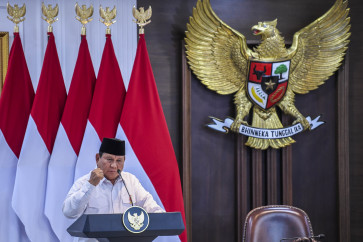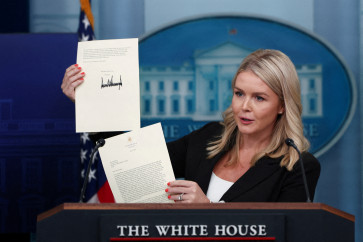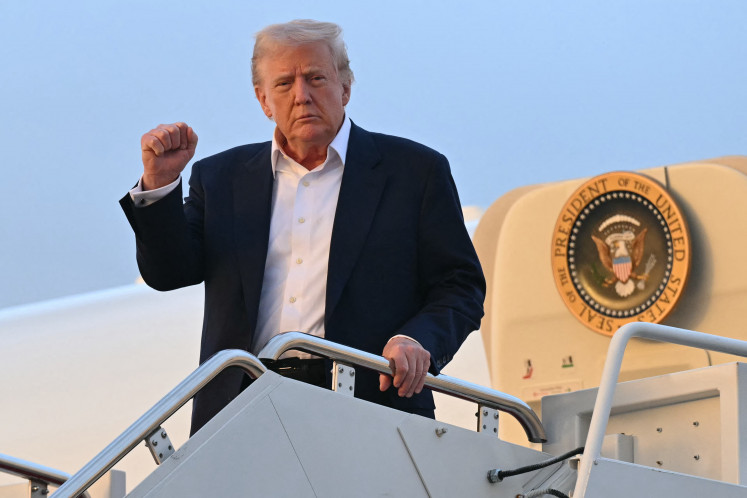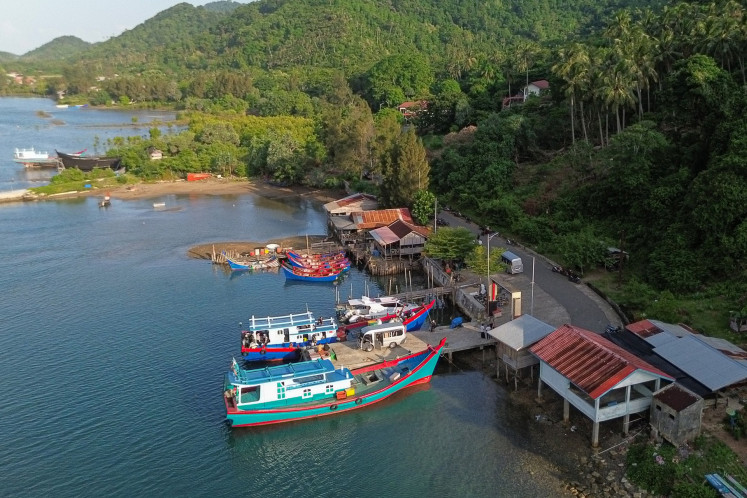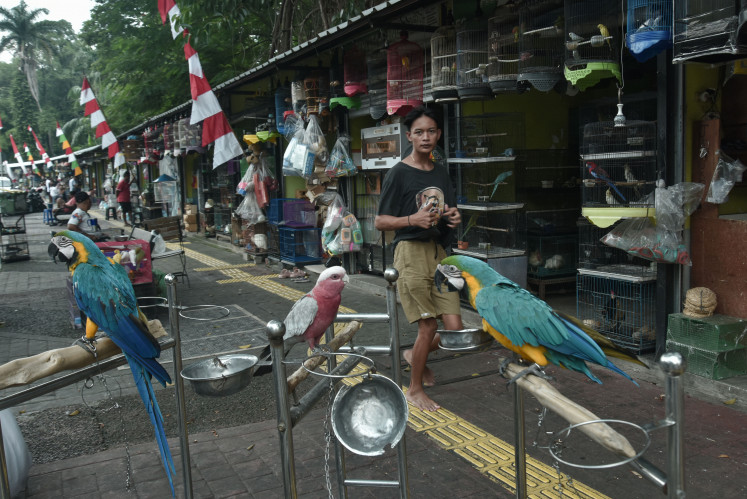Popular Reads
Top Results
Can't find what you're looking for?
View all search resultsPopular Reads
Top Results
Can't find what you're looking for?
View all search resultsDiscourse: On peace, reconciliation: ASEAN needs to learn from past
Rezlan Ishar Jenie (JP/Dian Septiari)Last year, Indonesia’s Rezlan Ishar Jenie was given the task of running an ASEAN think tank focused on peace and reconciliation
Change text size
Gift Premium Articles
to Anyone
Rezlan Ishar Jenie (JP/Dian Septiari)
Last year, Indonesia’s Rezlan Ishar Jenie was given the task of running an ASEAN think tank focused on peace and reconciliation. As executive director of the ASEAN Institute for Peace and Reconciliation (ASEAN-IPR), the senior diplomat has had to build the organization from scratch. The Jakarta Post’s Dian Septiari sat down with him on Monday to discuss the challenges he faces in carrying the institutional mandate. Below are excerpts from the interview.
Question: What has the institute achieved so far, and what are the plans going forward?
Answer: So I was appointed executive director in October 2017, and I was tasked to establish the office, recruit people and prepare the initial work to arrange the administrative regulations for the office within 90 days. We have also completed the Host Country Agreement with the Indonesian government.
For 2018, we have two research activities and three seminars and workshops. We have also arranged programs for the next three years, which have been approved by the ASEAN-IPR’s Governing Council.
The focus and scope of what ASEAN-IPR can do is very much determined by its terms of reference, which states that its mandate is to become an ASEAN institute that conducts research in the fields of peace, conflict management and conflict resolution, as well as post-conflict peacebuilding.
Besides that, the institute is also mandated to develop and promote various action lines in the ASEAN Political-Security Community Blueprint 2025. In the context of achieving that mandate, ASEAN-IPR is given several functions, such as doing research, capacity building, developing a pool of expertise and support for ASEAN bodies, as well as networking and the dissemination of information.
What are peace and resolution efforts like in the region?
We actually have a lot of experiences in the region on how conflict can be resolved peacefully or facilitated by ASEAN member states. I think these developments need to be studied and codified so they […] might later become standard practice and norms.
For example, from 1993 to 1996, Indonesia was asked by the Philippines to facilitate the Philippine government’s talks with the Moro National Liberation Front, which finally culminated in a peace agreement. It was not achieved under the ASEAN flag, […] but the fact that an ASEAN member state opened itself to help from other countries is a sign that, after going through a long period of development, there is trust and a level of comfort among ASEAN members.
The comprehensive documentation of developments that have taken place in the region are crucial, especially in terms of how mediation is carried out, who is involved and how one mobilizes support for the implementation [of solutions].
What are the organization’s research priorities?
We are carrying out two research items this year, one being Indonesia’s mediation in the Philippines’ Mindanao, especially how the process of conflict resolution was carried out. The other research initiative is conducted with the help of Cambodia focusing on the reconciliation achieved through the Paris Peace Agreement of 1991 to 1998.
Our other activities include hosting workshops: a youth conference on tolerance to be held in Indonesia this October, a symposium on women peacemakers and a training program on peace and reconciliation, both held in the Philippines.
The conflict in Myanmar has caught widespread attention as of late. Will you be studying this case?
Every ASEAN-IPR activity […] has to be discussed at the level of the Governing Council. For now, we are limited to the research of past experiences. However, within these initiatives, there could be a discussion on how to find answers that are relevant to contemporary issues.
Can we expect ASEAN-IPR to provide input in the future?
I am not saying it is impossible, but before that happens we must first study past developments.
According to [former Indonesian foreign minister] Marty Natalegawa in his new book [Does ASEAN Matter?], there are new nuances in ASEAN’s non-interference principle that show it isn’t stuck in the past. We know it is something that continues to evolve.


